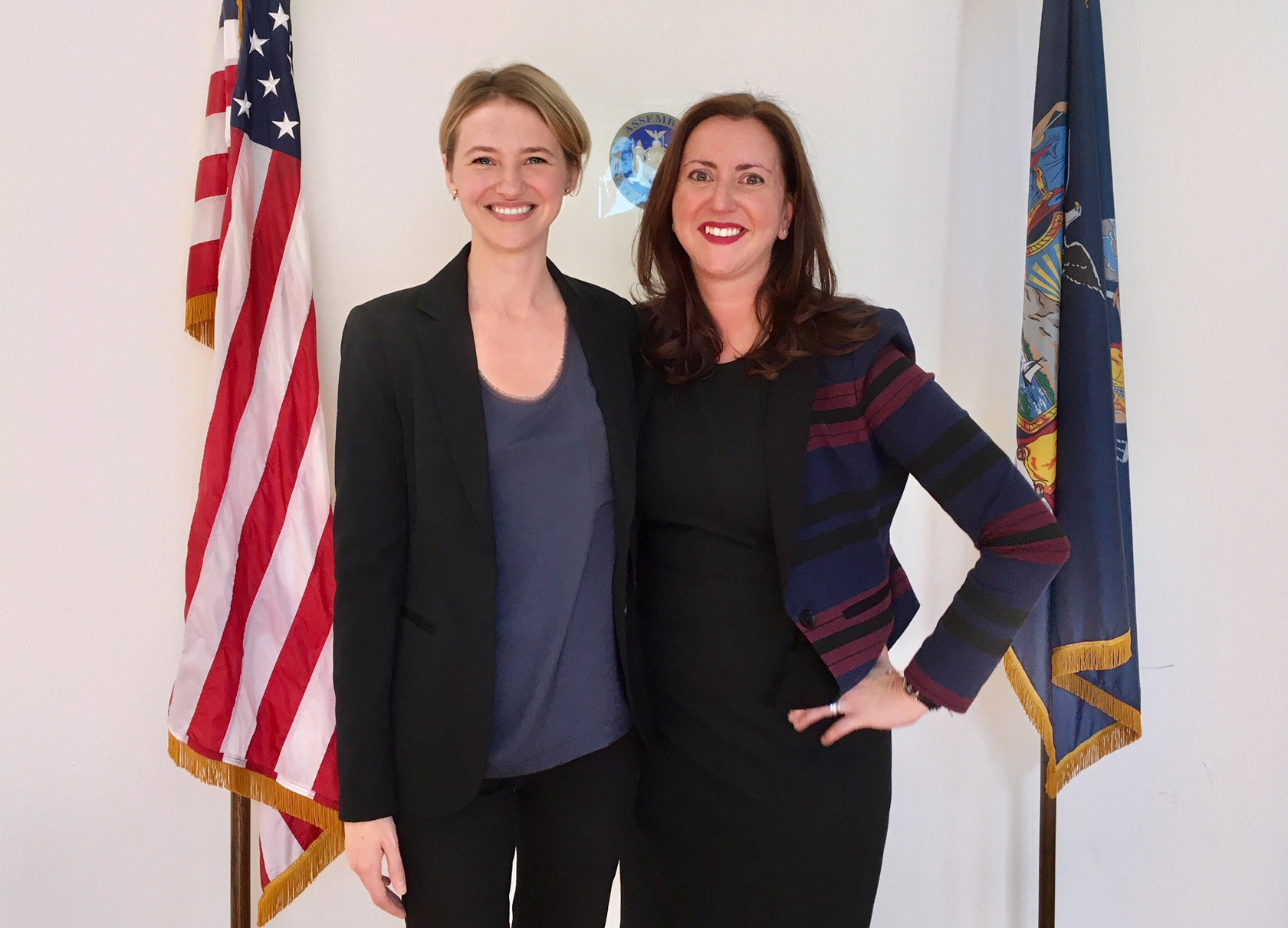On Monday the New York Times reported New York State assemblywoman Nily Rozic in partnership with Sara Ziff, who started the Model Alliance in 2012, introduced plans for an amendment to the current anti-discrimination laws already in place in the state. The measure comes amidst a bevy of serious allegations against film mogul Harvey Weinstein and other Hollywood helmsmen. The fashion industry quickly reacted with its own shake up, where undoubtedly similarly nefarious predators exist in the open, this mostly after model/activist Cameron Russell began posting a litany of accounts of sexual abuse submitted to her Instagram from other models. As the amount of posts kept growing (and keeps growing), and the anecdotes repeated familiar patterns, a feeling of an industry unpacking dirty laundry from a suitcase that everyone shared set in. The new piece of legislation being proposed will provide models’ a measure of protection from these kind of abuses.
“It’s pretty straightforward: Models as independent contractors are not protected against sexual harassment on the job. We are simply closing a loophole that would afford models, like anyone else who works for a living, protection against sexual harassment,” Ziff, a model herself, told Models.com, “People have asked, ‘why are models not protected?’ [Under] New York City law independent contractors are protected against sexual harassment, but because of the multi-level structure of this industry between agencies and models and clients there’s a gap. We are looking to close that gap.” To explain, at least partially, the cause of that gap, Ziff mentions what’s referred to as an “incidental booking clause”, something specific to the fashion industry. “Modeling agencies back in the 1970s, starting with Ford Models actually, said we aren’t talent agencies–we are management companies. As management companies they escape caps on commissions, a requirement to be financially transparent, act in the best interest of the people who they represent and they aren’t accountable for things like sexual harassment,” explains Ziff, continuing, “So this legislation basically says whether a modeling agency is an agency or a management company, however they want to characterize themselves, they still need to be held accountable when it comes to issues of sexual harassment.”
“So this legislation basically says whether a modeling agency is an agency or a management company, however they want to characterize themselves, they still need to be held accountable when it comes to issues of sexual harassment.”
Sara Ziff met assemblywoman Rozic through NEDA (National Eating Disorder Association), which the Model Alliance has collaborated with on issues addressing eating disorders in the modeling industry. Rozic, working with NEDA passed legislation requiring insurance companies to cover eating disorders treatment. Together, they moved ahead with this targeted sexual harassment bill months ago, even ahead of the Weinstein allegations. “Politicians have kind of steered clear of our industry,” mentions Ziff, “It’s also significant that the lawmaker who we are working with is a woman, so she totally gets it.” Sara wanted the assemblywoman, who lacked firsthand experience in the industry, to hear directly from the models, “Last Friday we held a Model Alliance meeting with assemblywoman Rozik at her district office and we had about 25 models come to that. It was an off the record conversation and we shared our personal stories and experiences of sexual harassment. That was powerful.”
It’s important to note, something Ziff addressed yesterday on her own Instagram, the industry’s toxic culture of sexual abuse towards its models has long been a prevalent problem and no secret. Ziff in 2009 produced the documentary “Picture Me” which raised red flags, specifically about Terry Richardson. Just today an allegedly leaked e-mail from Condé Nast stated they have barred the photographer from its publications internationally. “I have personally have been working to introduce legislation on sexual harassment for over two years,” Ziff reminds us, “They think we’ve crafted this out of the Weinstein scandal or what’s happening on social media. I wish it was that easy, but we have been working on this for a very long time.” The Model Alliance (its core members consist of Kelli DeSantis, Madeline Hill, Meredith Hattam, and Emma Loewen, advisory board members include Karen Elson, James Scully and presidents of three agencies) partnered with a legal clinic and law school students to conduct research in order to understand protections that were already in place and legal pathways to address standing issues. From that report, the bill introduced yesterday drew heavily.
After learning of the Harvey Weistein allegations Ziff says it brought back difficult memories, “I’d have to lay down on the couch to really tell you,” says Sara laughing (but not really), adding, “A lot of women I have spoken with have said they sort of, they experienced almost some sort of PTSD where all of these memories keep flooding back from the dark reaches of our brains.” She then acted as there could be no better time then now to push the amendment where otherwise it could be a footslog to the finish, “Running the Model Alliance, I have I think an unique and important role to play in stepping up to the plate and exercising some leadership and so I’ve basically been working 24/7 to finalize the draft of this bill and get everything in order so that we can introduce it while this was still in the news cycle.”
The New York Times reported that if both legislature houses pass the bill by June, it can be signed into law by the end of 2018.









